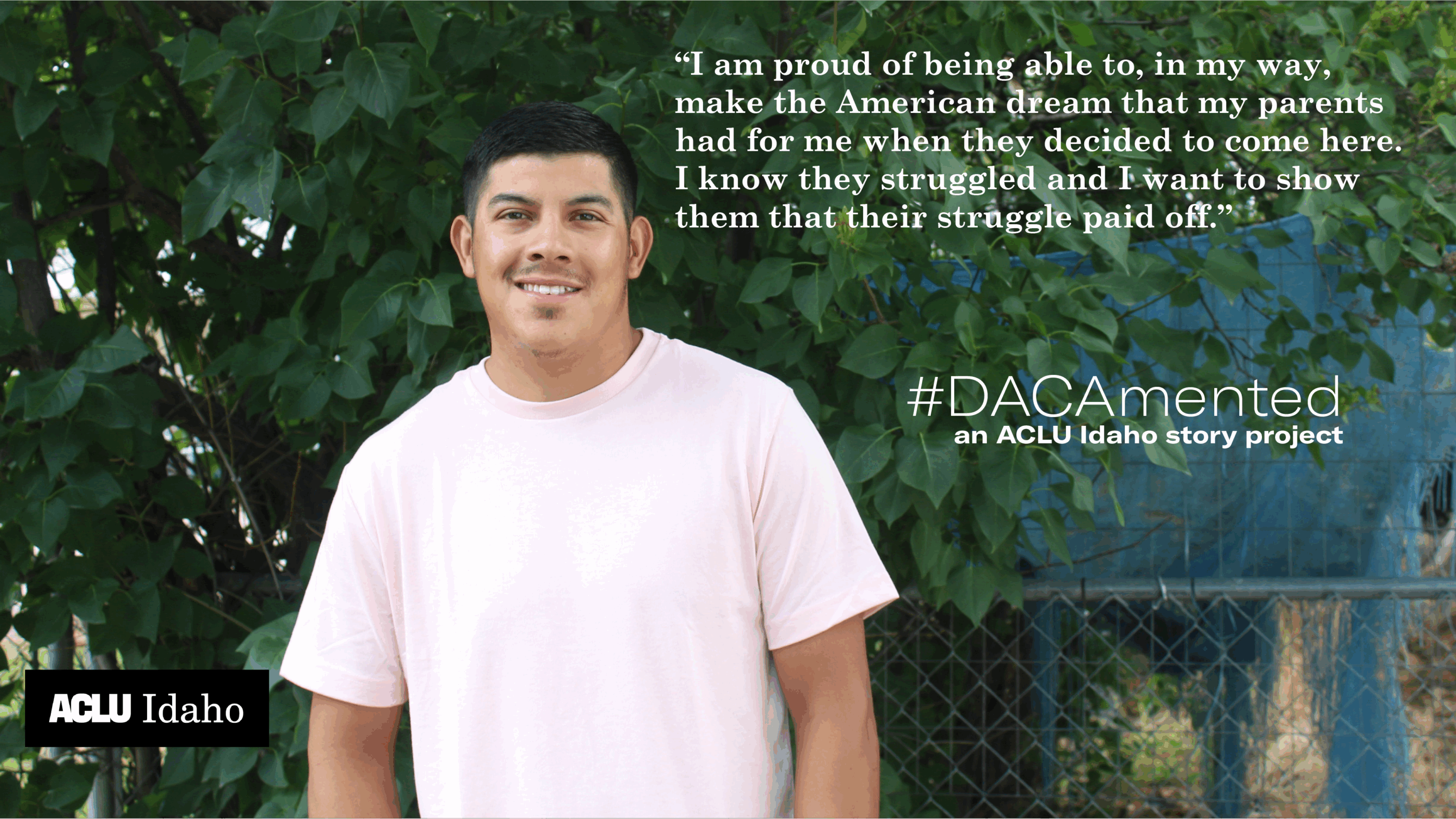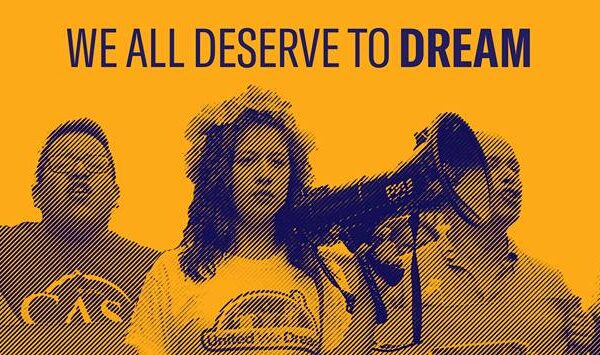Jesus was born in Romita, Guanajuato, Mexico. His dad used to come to the U.S. as a seasonal worker every year from the mid 80’s to the late 90s. But working as a seasonal worker brought very little income to the family. His dad finally gained enough courage and decided to bring his whole family to the state, being the first one in his family to immigrate to the U.S. in 1997. Jesus was only two years old.
When did you realize that you were undocumented?
It didn’t hit me that I was undocumented till I was in high school and everyone began to take driver’s ed late Freshman year, and had their license Sophomore year. I had to drive without a license all of my high school years.
How did living undocumented make you feel?
Limited. The word of choice would be limited, because you have limitations to things. You always had an ear out for immigration, people telling you that immigration is here, immigration is there, so you would have limitations on where you could go. You were out and about but with caution looking over your shoulder making sure that you weren’t being followed by la migra.
Did your family have an emergency plan in case one of you were detained?
No. It just wasn’t something that crossed our mind. It was realistic in general, but it just seemed so unrealistic at that same time to be somewhere else that we weren’t apart of anymore.
How did your life change once DACA was brought forward?
I never felt like things changed, because I never really felt that I didn’t belong here. But once I was able to get legal documents to be here I felt at ease because I can do the basic necessities to survive. Having a SSN so I could work, getting a license to get to work, just the basic things to be a part of this dream.
"I am proud of being able to, in my way, make the American dream that my parents had for me when they decided to come here."
How did you react to the last election? What were your initial thoughts about what that could mean to DACA recipients/immigrants?
I still remember that day like it was yesterday. I was working in the farm, and I usually don’t pay attention to politics but that Tuesday night, I stayed up till they announced who won. Once they did though, I went to bed in fear that night. I woke up the next morning and nothing felt the same anymore. It felt that we had this black cloud over us, that had its presence during the Obama administration, but it definitely had a heavier impact once the Trump administration took office. It injected a lot of fear to my family and many other families as well.
What is the thing you are proudest of so far and why?
I am proud of being able to, in my way, make the American dream that my parents had for me when they decided to come here. I know they struggled and I want to show them that their struggle paid off. I’m proud to tell them that I graduated high school and that I never took any bad routes in life. They brought me here to be a good person and that’s what I am, or at least I try to be. I’m also proud of having my own little family, my wife and my son, who are my biggest joy.
What led you to start talking about your story, despite the risks, and why do you think it’s important to speak up?
You hear a lot of stories about the 800,000 DACA recipients who will be affected [if DACA ends], but from those recipients each one has a story, each one is here for a reason, each one was able to qualify for a reason. We are good people. We can’t be DACA recipients if we have criminal records or problems with the law. There are so many stories to be told. We work hard just like any other American, and it’s important to tell our story.
What do you wish more people knew about DACA recipients/immigrants?
That we pay taxes, just like anybody else does. That is the biggest thing that people try to say about DACA recipients, that we get help from the government or that us Mexicans get paid under the table. To me, one thing I’m proud to say is that I contribute to this country, because I work, I get taxes deducted from my paychecks, I file taxes every year, and even if it’s nothing to the average American who has a mindset that Mexicans are just freeloaders, I find a great satisfaction to look at my paystubs and know that I contribute to this country, as much as they’d like to deny it.
What message do you have for other undocumented folks/Dreamers?
You are not alone. I know that wherever the cards may lay it is not the end. If you are a DACA recipient you have several opportunities, but there is a million plus that don’t, who wish they had this opportunity that we do have. My advice is that we always take advantage of what we have. There is us, who wish we could be citizens someday, but then there are those who are undocumented and wish they just had DACA. There is always going to be somebody behind you wanting what you have, so wherever you fall on this line take advantage of the opportunities that you are presented with and always make the most of it in life. Always be grateful and humble to who you are, where you are going in life, and staying true to your roots and where you came from.


